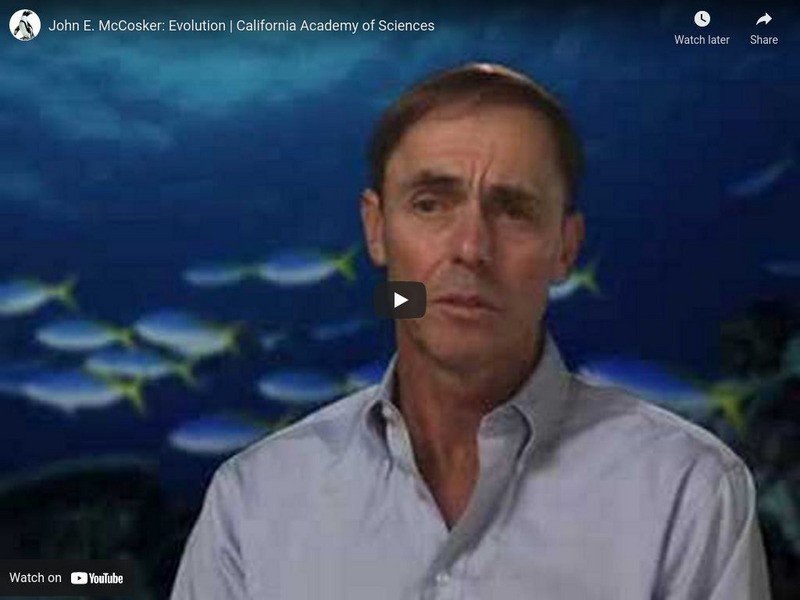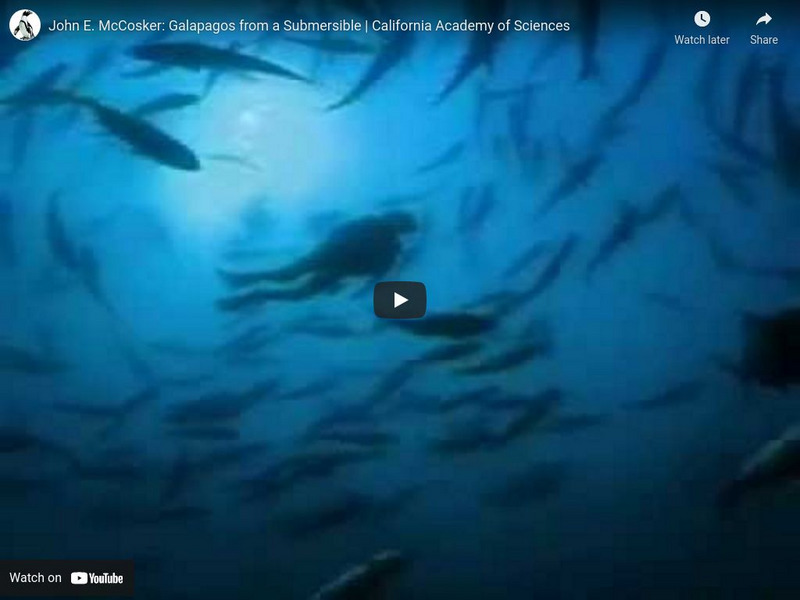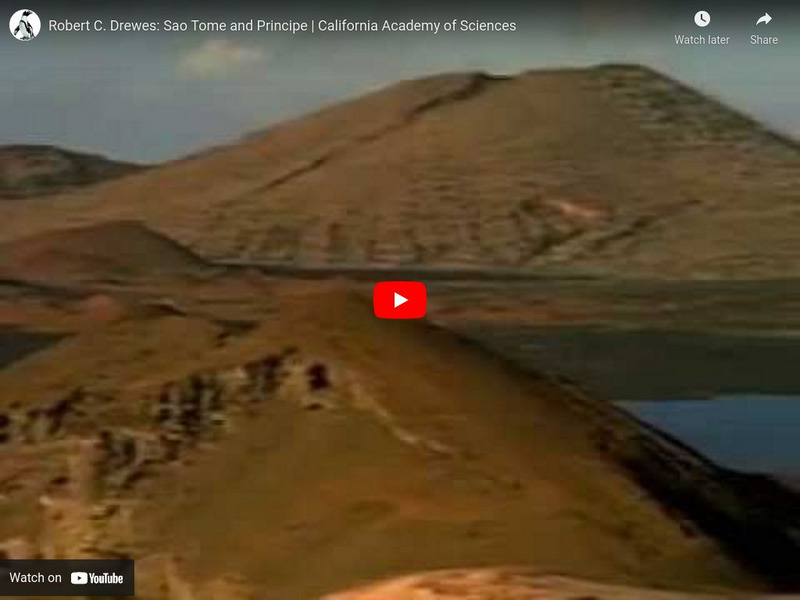PBS
Pbs Nova: What Darwin Never Knew
This documentary film [02:00:00] examines Darwin's insights and discusses how new breakthroughs in science are unlocking answers to riddles that Darwin couldn't answer. (29 December 2009)
CK-12 Foundation
Ck 12: Evolution of Life: Introduction to Evolution and Natural Selection
[Free Registration/Login may be required to access all resource tools.] Introduce students to evolution, variation in a population, and natural selection. This video highlights the relationships between evolution and natural selection as...
Khan Academy
Khan Academy: Speciation
Learn about speciation, including allopatric and sympatric speciation and mechanisms of reproductive isolation. [10:46]
Khan Academy
Khan Academy: Biodiversity and Natural Selection
Explore the patterns and processes of evolution. Learn how evolution and natural selection are reflected in the similarities and differences of organisms. [9:03]
University of Utah
University of Utah: Learn. Genetics: Recipe for Natural Selection
With this video, learn about the three ingredients that drive the process of natural selection: variation, heritability and reproductive advantage.
CPALMS
Florida State University Cpalms: Florida Students: Methods of Evolution in Animal Populations Big and Small
The process of evolution is described in this video. What happens to animal populations? [5:45]
Sea Studios Foundation
Shape of Life: Jenny Clack, Paleontologist: The First Vertebrate Walks on Land
Investigate with a paleontologist, Jenny Clack, who wants to find the transitional form between fish and land vertebrates or tetrapods. She spent years teasing a fossil from its rock and studying the fish-like animal that shows evolution...
Khan Academy
Khan Academy: Genetic Variation, Gene Flow, and New Species
Learn how genetic variation is the raw material of evolution, and learn how restricted gene flow can lead to the formation of new species. [11:52]
California Academy of Sciences
Ca Academy of Sciences: Science Heroes: John Mc Cosker, Evolution
When he is not deep-sea diving or researching white shark behavior, Dr. John McCosker's interests include aquatic animal evolution and behavior, plus discovering and cataloging the fishes of the Galapagos Islands. [1:17]
Khan Academy
Khan Academy: Are Any Dinosaurs Still Alive Today?
A video discussing whether dinosaurs are still alive today through their evolutionary tree. [0:40]
Khan Academy
Khan Academy: Mcat: Biomolecules: Evolution and Population Dynamics: Alternative Selection
Learn about driving forces of evolution other than natural selection. Group selection and artificial selection are just a few of these forms of 'Alternative Selection.' [4:34]
Science Friday Initiative
Science Friday: Human Driven Evolution
Researchers believe that hunting and fishing regulations run counter to natural patterns of evolution, and have impacted the rate of evolutionary change in animals subject to human predation. Aired Jan. 16, 2009 [12:29 min]
Science Friday Initiative
Science Friday: Amber Gives a Glimpse of Ancient India
Learn how biological specimens trapped in amber have given scientists a new look at India in this audio lecture. [12:42]
Bozeman Science
Bozeman Science: Microevolution
Paul Andersen defines microevolution as any change in the frequency of the allele pool. He then explains the five mechanisms of evolution; small sample size, non-random mating, mutations, gene flow and natural selection.
California Academy of Sciences
Ca Academy of Sciences: Science Heroes: John Mc Cosker Galapagos in a Submersible
For environmental biologists, the Galapagos Islands remain deeply inspirational. To a marine biologist like John McCosker, the Galapagos represent a challenge to study evolutionary biology in a place where Darwin never dreamed of going...
California Academy of Sciences
Ca Academy of Sciences: Science Heroes: Bob Drewes, Finding Unique Species
Dr. Robert Drewes, curator of herpetology at the Academy has led two multidisciplinary Academy expeditions to Sao Tome and Principe in past years. The Islands' biogeography presents a unique opportunity to witness evolutionary processes...















